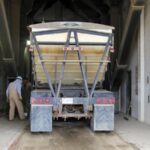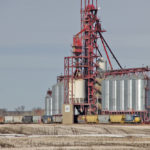
Tag Archives WGEA

Preview: Railways, grain shippers at loggerheads over interswitching
Pilot to test expanded radius deemed unnecessary by both sides

Elevators hope mandatory vaccination doesn’t disrupt operations
New regulations will require all federally regulated employees to comply early in 2022

Mixed messages: Declining order fulfilment accompanies grain shipping record
Increased grain production means new records are needed to move the crop, shippers say

Ottawa expected to ‘officially’ declare ag an essential service
The Western Grain Elevator Association says that designation will clarify things and help to keep grain moving

Handlers focus on keeping grain moving despite COVID-19
Grain companies, Canadian Grain Commission working but unsure of future

Grain firms warn of competitive fairness on Churchill assistance

A new day for grain transportation?
With record port throughput occurring twice in the crop years following the 2013-14 shipping backlog it ‘feels’ that way

New grain system priorities: data collection, infrastructure

New record set for Prairie grain throughput in 2016-17

New transportation legislation still set for spring introduction
While grain farmers and shippers look forward to legislation they want provisions under C-30 set to expire Aug. 1 extended until the amendments take force




